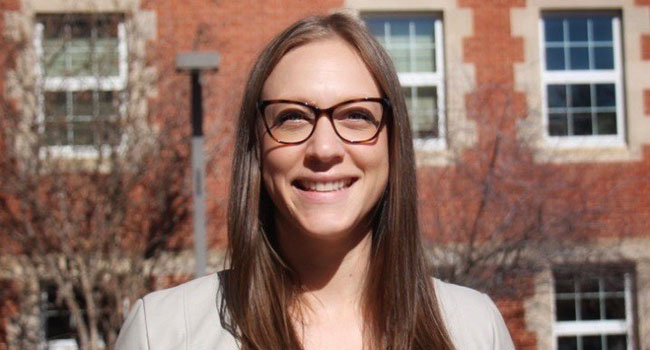This highlights the multiple factors that influence Indigenous health outcomes in times of disease, said Jessica Kolopenuk, a researcher in the University of Alberta’s Faculty of Native Studies.
“The reality is that the ways pandemics are experienced at local and regional levels are shaped by national and even global forces of power: colonialism and imperialism,” she said.
To understand the impact COVID-19 can have on Indigenous populations, the social, environmental and economic factors that exist simultaneously with disease – and worsen it – need to be taken into account.
Colonial policies have historically contributed to Indigenous peoples being disproportionately affected by outbreaks of disease, said Kolopenuk. She cited policies of starvation in the late 1800s and of assimilation and institutionalization into the 20th century, including residential schools, day schools, prisons, jails, hospitals and sanitoria.
“These different kinds of institutional spaces always combined racial assimilation with cultural assimilation. So curing the ills of the body required also curing the ills of so-called Indian culture, to use the terminology of the time,” she said.
She said these sites and policies have contributed to shaping the kinds of narratives – that Indigenous peoples are inherently more susceptible to particular diseases and therefore are more constitutionally fragile – that circulate about Indigenous peoples and disease, Kolopenuk said.
“The risk factors of infectious disease are intensified as a result of colonial policies. However, often Indigenous peoples are framed as being the problems themselves, as being more susceptible,” she said.
Underlying health issues such as heart and lung disease and diabetes today must be understood within the context of colonialism, Kolopenuk said.
“Those historical instances have shaped the health of our communities and populations right now and they make people more susceptible to the more serious symptoms of this new iteration of a pandemic.”
There are also some immediate issues, said Kolopenuk, such as access to affordable food, clean drinking water and health care, that amplify the impact of COVID-19 on Indigenous populations.
“There are these very basic structural issues that are required for healthy living that are just not there for many Indigenous communities, and that make the situation of the pandemic potentially worse.”
In response, communities have been making strong assertions of sovereignty to protect themselves, said Kolopenuk.
“Communities in Nunavut are blocking access to gold mine workers. The Haida nation has asked people not to visit their tourist sites. I’ve even seen individuals on reserves posting signs at the end of their driveway that unfortunately their house is not open to visiting. These are different levels of self-determination.”
Kolopenuk also pointed to the development of pandemic responses by individual communities that are both culturally relevant and politically self-determined. For example, she said, the Maori have developed a website that delivers education, information and resources to Maori people in a way that’s relevant for, and designed by, Maori people.
In their responses to the COVID-19 pandemic, Kolopenuk said, Indigenous communities have an opportunity to strengthen their governance capacities.
“Each First Nation, each Métis settlement, each Indigenous community needs to determine their public health plan, and they need to practise it. So if someone in the community tests positive, what are they going to do, who are they going to report to and engage with, how will your community secure testing kits, what lab will do the analysis, how will you work with provincial counterparts?” she said.
“If we’re able to develop those capacities within our own communities, then this will be an opportunity to write a different story about how this is going to impact us as Indigenous peoples.”
| By Jordan Mae Cook
This article was submitted by the University of Alberta’s online publication Folio, a Troy Media content provider partner.
The views, opinions and positions expressed by columnists and contributors are the author’s alone. They do not inherently or expressly reflect the views, opinions and/or positions of our publication.


